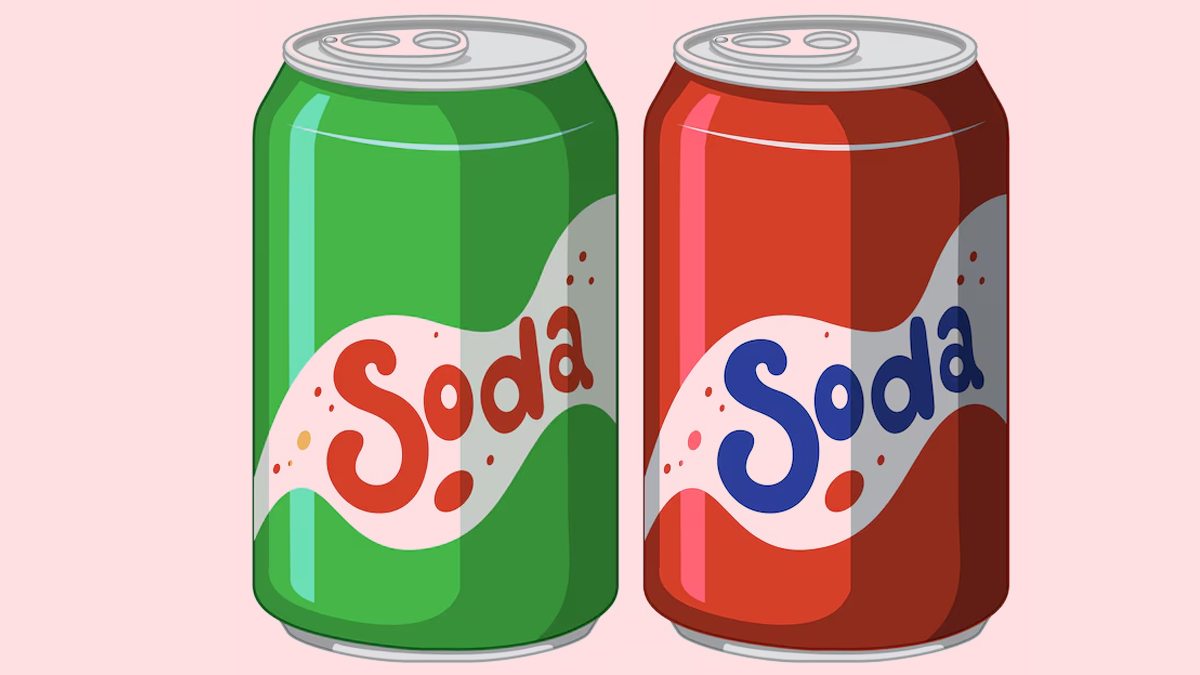
In this fast-paced corporate world, that demands “out of the box” and unique ideas from you, consumes your majority mental agility and sharpness. To keep this intact, it is important to work on your cognitive skills and sharpen them. Apart from keeping up with exercises and following other mind sharpening practices like meditation, the food choices you make also play a vital role in determining your cognitive abilities.
Table of Content:-
While certain foods can enhance brain function, others can hinder it, leading to memory lapses, poor concentration, and even long-term cognitive decline. Understanding the impact of diet on brain health is essential for anyone looking to maintain their mental edge. Here are nine food items you should be wary of:
1. Sugary Drinks

Sugary drinks, such as sodas and sweetened beverages, are loaded with high levels of sugar, which can have a detrimental effect on your brain. According to Harvard Medical School, excessive sugar consumption has been linked to impaired memory and a decrease in overall cognitive function. It can also lead to inflammation and oxidative stress, both of which negatively impact brain health.
2. Trans Fats
Trans fats, often found in processed foods, baked goods, and margarine, are known to harm brain function. Studies have shown that a diet high in trans fats can lead to cognitive decline and an increased risk of developing Alzheimer's disease. These fats can cause inflammation and plaque buildup in the brain, impeding cognitive abilities.
Also read: Inconsistent Sleep Patterns Over Years May Impact Cognitive Health: Study
3. Red Meat

While red meat can be a good source of protein and iron, consuming it in large quantities can be detrimental to brain health. High levels of saturated fats found in red meat have been associated with cognitive decline. Additionally, some studies suggest that a diet rich in red meat can increase the risk of developing dementia.
4. Refined Carbohydrates
Refined carbohydrates, such as white bread, pastries, and sugary cereals, can cause rapid spikes and drops in blood sugar levels. These fluctuations can lead to brain fog, poor concentration, and impaired memory. Over time, a diet high in refined carbs can contribute to insulin resistance, which has been linked to cognitive decline and an increased risk of neurodegenerative diseases.
5. Processed Foods

Processed foods, including snacks, fast food, and convenience meals, often contain high levels of unhealthy fats, sugars, and additives. These ingredients can negatively impact brain health, leading to cognitive impairment. Additionally, the high sodium content in many processed foods can increase blood pressure, which is a risk factor for cognitive decline.
6. Artificial Sweeteners
Artificial sweeteners, commonly found in diet sodas and sugar-free products, may seem like a healthier alternative to sugar, but they can also harm cognitive function. Some studies suggest that artificial sweeteners can alter the brain's reward system, leading to cravings and overeating. They have also been linked to changes in mood and behavior, affecting cognitive performance.
7. Fried Foods

Fried foods, such as French fries, fried chicken, and donuts, are often cooked in unhealthy oils that contain trans fats and other harmful compounds. Regular consumption of fried foods can lead to inflammation and oxidative stress, both of which can impair brain function. Moreover, a diet high in fried foods has been associated with a higher risk of developing depression and cognitive decline.
8. High-Sodium Foods
Foods high in sodium, such as salty snacks, canned soups, and processed meats, can have a negative impact on brain health. Excessive sodium intake can lead to high blood pressure, which restricts blood flow to the brain and impairs cognitive abilities. Over time, this can increase the risk of cognitive decline and dementia.
9. Alcohol

While moderate alcohol consumption may have some health benefits, excessive drinking can severely damage cognitive function. Research says that alcohol can impair memory, decision-making, and overall brain performance. Chronic alcohol abuse can lead to brain shrinkage, particularly in areas responsible for cognition and memory.
Conclusion
Your diet plays a pivotal role in maintaining cognitive health. By being mindful of the foods you consume, you can help protect your brain from the negative effects of certain dietary choices. Limiting sugary drinks, trans fats, red meat, and other harmful foods can go a long way in preserving your cognitive abilities and ensuring a healthier, sharper mind as you age. Make informed dietary choices today to safeguard your cognitive future.
Also watch this video
How we keep this article up to date:
We work with experts and keep a close eye on the latest in health and wellness. Whenever there is a new research or helpful information, we update our articles with accurate and useful advice.
Current Version